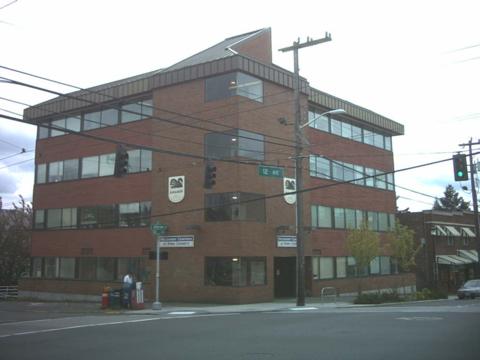Over the past 20 years, The Recovery Centers of King County have admitted thousands of impoverished drunks and addicts, laboring to get these desperate people, many of them homeless or admitted from hospital emergency rooms, past their physical withdrawals.
Suddenly, though, the RCKC has gone belly-up, abruptly severing its $1 million a year detox contract with the county and sending its treatment staff and certified chemical dependency counselors packing. Officials in the mental health community are not quite sure why—or they’re not saying. “They were having financial problems, but I can’t say what happened. You’ll have to get that from Carole Hayes,” said Jim Vollendroff, director of King County’s Mental Health, Chemical Abuse and Dependency Services Division.
“My understanding is that they are going out of business, but I can’t give you any specifics,” said Michael Langer, chief of Behavioral Health and Prevention for the Department of Health and Social Services, which holds the state’s $890,000 a year contract with RCKC for inpatient residential care. “Have you talked to Carole?”
Hayes is RCKC’s executive director, a job she began in December 2014. She declined to return numerous phone calls last week, but we managed to track her down at the detox center, a 27-bed clinic nestled, inauspiciously, within a quiet tree-lined Rainer Valley neighborhood.
Resembling a small motel, complete with outdoor fountain, the white two-story building was dark and nearly empty, lending an air of dispirited abandon. A few workers were packing up boxes when Hayes appeared. She was not happy. “I’m not going to talk right now,” she said, clearly annoyed at this unannounced visit. “There are no patients here. I’m trying now to connect them with other services. So I’m going to have to ask you to leave, politely.”
But why are you closing?
“I’m going to have to ask you to leave.”
Not long after our unceremonious departure, Seattle Weekly learned from a former employee, a $19-an-hour counselor who said he was recently laid off, that the U.S. Department of Labor’s Wage and Hours Division is engaged in an ongoing investigation of The Recovery Centers.
Julie Shellhorn, the lead investigator in the Department of Labors’ Seattle office, confirmed last Wednesday that the treatment facility is in fact the subject of a federal probe. “But I cannot discuss it or tell you anything about this investigation,” Shellhorn told the Weekly.
Meanwhile, the former counselor, who asked to be identified only by his first name George and whom Shellhorn acknowledged speaking with during the course of her investigation, said he and “maybe 15 others” at RCKC were contacted and interviewed by Department of Labor investigators in late July or early August of 2014.
“The substance of it is unpaid wages, and that we were asked to work off the clock,” said George. “Some of this goes back years. I know I was working 30 hours per month off the clock.”
Whether the Labor probe was the tipping point that led the powers that be at RCKC to pull the plug is anyone’s guess. “I can’t say since I didn’t know anything about this investigation until now,” said King County mental health director Vollendroff, after we informed him of it last week.
It is not unusual for treatment facilities such as RCKC to go under. Last April, as Seattle Weekly has reported, a 41-year-old inpatient center in Madrona, the 48-bed Genesis House, closed its doors, unable to maintain costs due to the vagaries of contracts from the state Department of Social and Human Services and ever-scarce state general-fund dollars.
The Genesis House, like RCKC and other similar facilities, could not rely on Medicaid money due to a longstanding and much-criticized rule under the Affordable Care Act that limits Medicaid to facilities with 16 beds or fewer. The rule is known as the Institutions for Mental Disease exclusion, an incentive in this era of deinstitutionalization to empty psychiatric hospitals.
“Reimbursements are low, so these places have to operate on a pretty thin margin,” said Vollendroff, “but I don’t think the reimbursements had anything to do with them (RCKC) closing.”
RCKC, which, in addition to the detox center, was also operating two other outpatient clinics serving more than 400 clients, in Kent and on First Hill, charged the county $190 a day to keep a person in detox.
Vollendoff said the unexpected termination of the contract, which came on April 3–and without the required 30 days’ notice to cease operations–left the county scrambling to secure a fast, interim three-month contract (at a rate similar to what RCKC was charging) with Fairfax Hospital and Cascade Behavioral Health for 20 temporary detox beds. A request for proposal for a new contract was sent out last week.
“I think it is weird and very troubling that no notice was given us,” said King County Council member Dave Upthegrove, chair of the county’s Health, Housing and Human Services Committee.
econklin@seattleweekly.com








